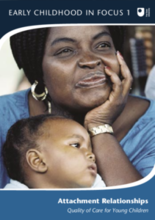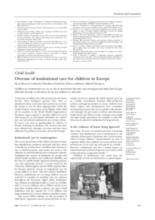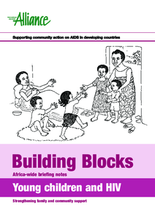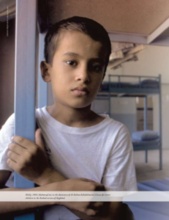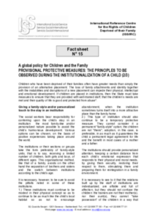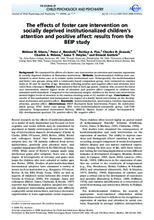Displaying 441 - 450 of 485
An exploration of various contributing factors with regard to attachment relationships from early childhood to adulthood.
This article discusses the use of institutional care for children in Europe and shows that it remains common place despite the evidence of harm for children, including attachment disorder and developmental delay.
Practical guidance on dealing with young children in the context of HIV/AIDS. Focuses on the developmental needs of children affected by HIV/AIDS. Also focuses on care and treatment provision for children who are HIV-positive.
Overview of a CARE’s 5x5 Model, designed as an early childhood development intervention for orphans and vulnerable children (OVC) in order to provide long-term physical, socio-emotional, and cognitive benefits.
This is a chapter from the United Nations Secretary-General’s Study on Violence Against Children that specifically explores the factors contributing to violence against children in institutional care and justice institutions. This chapter includes sections on the sources of violence against children in institutional care, the impact of institutional care on children’s health and development, and the populations of children most likely to become institutionalized.
A list of bi-lateral and multilateral funding agencies for child protection. Includes names, email addresses, and particular area of focus.
A brief 2-page overview of appropriate residential institution characteristics. Includes information on staffing, and the optimum size of each family-like unit.
The study examined the effects of a foster care intervention on attention and emotion expression in socially deprived children in Romanian institutions
Summary guidance on the use of therapeutic language and the role of play and art in helping children’s development, and in responding to children exposed to trauma.
This report presents the survey Kevin Browne and colleagues conducted in 33 European countries to identify the number and characteristics of children less than three placed in residential care without their parents for more than three months during the year ending December 31, 2003. The purpose was to assess the rate and cost of residential care as a response to children in adversity.

